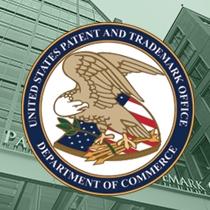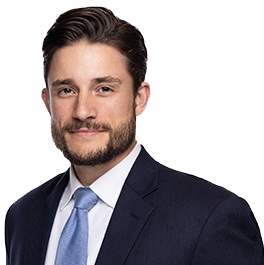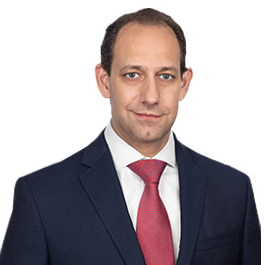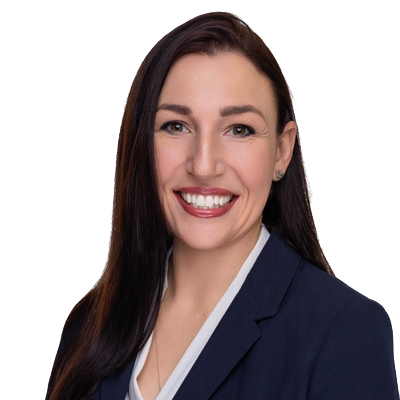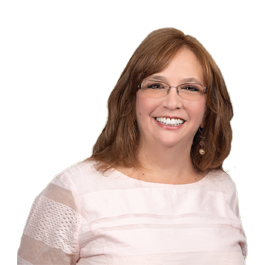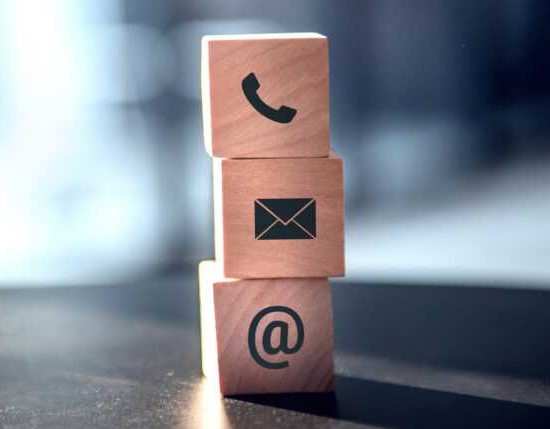Patent Infringement Litigation
Pittsburgh, Pennsylvania Patent Infringement Litigation Lawyers
The attorneys at the Pittsburgh law firm of Houston Harbaugh, P.C. have represented plaintiffs and defendants in numerous patent infringement lawsuits throughout the country. IP Practice Area Chair Henry Sneath and his team have been involved in some of the regions largest patent infringement lawsuits and trials. The experienced Houston Harbaugh attorneys bring strong trial skills; strong knowledge of the courts and bench; and a clear understanding of the Federal Local Patent Rules for the Western District of Pennsylvania.
Patent infringement cases are heard exclusively in federal courts, and the federal court in Pittsburgh–the United States District Court for the Western District of Pennsylvania–is one of fourteen patent pilot courts throughout the country that have been tasked to specialize in hearing patent cases. The Court has specialized local patent rules that govern these cases. There are currently five specially designated patent judges in the Western District, and the attorneys at Houston Harbaugh have appeared before all of them. Our IP department chair sits on the Local Patent Rules Committee and has helped to draft and shape these rules for our federal court.
Markman Claim Construction, Complex Discovery, Document Management
In addition to handling patent infringement litigation, our attorneys also handle appeals of patent judgments, which are heard exclusively by the United States Court of Appeals for the Federal Circuit. Houston Harbaugh attorneys counsel clients who are considering filing suit or who have received cease-and-desist letters from patent holders. We can help clients navigate these waters and to conduct the proper due diligence required in these circumstances. We handle all phases of patent litigation, from inception to Markman (claim construction) hearings, discovery, experts, dispositive motions, trial, and post-trial motions.
Many patent cases involve thousands and sometimes millions of pages of documentary evidence. At Houston Harbaugh our complex patent litigation team has managed large document retrieval and production projects working with large document databases like Relativity to review, analyze, code, tag, sort and produce documents, with privilege and work product review, issue spotting and tagging and management of the documents for depositions and trial.
Our Patent Infringement Experience
Houston Harbaugh attorneys have handled patent infringement matters in a wide variety of technology areas, including:
- Medical radiation therapy devices
- Car battery testers
- Well drilling technology
- Computer and internet technology
- Voice recognition software
- Cellular phones
- Cable TV set-top boxes
- Fuel filters
- Lighting fixtures
- Farming equipment
- Power cabling
- Safety knives
- Cleaning equipment
- Refractory materials
- Cat litter
Explaining Patents
Clients sometimes are unaware of exactly what a patent is and what it protects. This brief summary gives a high-level view of the patent process and types of patents that can be obtained in the United States. Obviously, there is much more to the patenting process, but this summary provides a brief orientation that will help with further discussions about obtaining a patent in the United States. For further information, contact Houston Harbaugh, P.C., intellectual property lawyers in Pittsburgh, Pennsylvania.
What Is a Patent?
Clients often have a misconception about what a patent is and what is necessary in order to obtain one. Patents are for inventions, not ideas. You can only receive a patent for a useful, new and non-obvious invention — meaning a process, machine, article of manufacture, composition of matter, or improvement to one of these. Patents are not available for laws of nature, physical phenomena, abstract ideas or artistic works. Only inventors can apply for a patent, not companies; but both individuals and companies can own patents.
Once obtained, a patent is a government granted right to prevent others for a limited time from making, using, offering for sale, selling or importing the patented invention in the United States without the patent owner’s permission. It is not a right to make, use or sell it yourself (because someone else may already have a patent on all or part of your product). While a patent can be extremely useful in protecting an idea, a patent is not required in order to sell a product.
Another common problem that arises is that an inventor’s own actions can prevent him or her from getting a patent. You can lose the right to obtain a patent if the invention is publicly disclosed, offered for sale, or sold before an application is submitted to the Patent Office. (This is a new change in the law — you used to have one year to get an application on file, but no more). This is an important point that many inventors do not realize and that can cost them the ability to obtain a patent.
Three Main Types of Patents
There are three main types of patents in the United States that inventors can obtain:
Utility
A patent for a new and useful process, machine, manufactured article or composition of matter that generally lasts for 20 years from the date of the earliest filed application (not when patent issues).
Design
A patent for a new, original, and ornamental design for an article of manufacture (similar to a copyright, but for ornamental designs on products) that generally lasts for 14 years from the date the design patent is granted.
Plant
A patent for a distinct and new variety of plant that someone invents or discovers and then asexually reproduces that generally lasts for 20 years from the date of the earliest filed application (not when patent issues).
Three Main Types of Patent Applications
The patenting process starts with an application (either a provisional, non-provisional, of PCT) where the inventor describes in detail the invention and the best way he or she knows to implement it. It includes detailed drawings and flowcharts of the process or invention. Finally (at least with respect to non-provisional and PCT applications), it includes “claims,” which define the legal boundaries of the patent (and are therefore the most important part of the patent).
The three main types of applications that an inventor can file with the Patent Office in order to start the process of obtaining a patent are:
Non-provisional
A formal application examined by the patent office that may lead to an issued patent. This is what most people think of when they think of a patent application. Once filed, it takes on average 18 months for the patent office to review the non-provisional application and issue its first office action (the comments, concerns and rejections). Overall, it takes about 30 months from filing for a patent to issue.
Provisional
An informal submission that is never examined by the Patent Office that preserves your patent rights for one year for everything adequately disclosed in the provisional application. A provisional application will not result in an issued patent, but is referenced in a non-provisional application.
Provisional applications are very useful for new inventors or start-ups that do not have the resources or are not sure if the invention will be commercially viable. They are also very useful for companies that are in the development phase and want to protect their ideas as they develop them. Inventors often file them before disclosing an idea to a third-party in order to protect the inventor from the third party stealing the idea. It is very important that these are done correctly, otherwise an inventor may not be able to rely on it when filing a non-provisional application and lose the benefit of the provisional filing date.
PCT (international)
The Patent Cooperation Treaty is an international treaty signed by most countries. A PCT application allows an inventor to file one application that will preserve his or her patent rights throughout most of the world. The inventor must later file formal patent applications in every country where he or she wants patent protection (called nationalizing the application), but has 30 months to do so. It is a great mechanism for preserving rights, streamlining foreign applications, and delaying the decision of whether and where to obtain patent rights. It must be filed before any public sale, use, or offer for sale and within one year of the first patent application filed by the inventor for that invention.
Schedule a Consultation to Discuss Your Litigation or Appeals Options
Our Pittsburgh intellectual property attorneys help clients navigate intellectual property and other business disputes by providing them with the knowledge and information needed to make informed decisions. For more information, call 412-288-4013 or send our attorneys an e-mail by completing the contact form on this website.
Representative Engagements
- Representation of battery testing manufacturer in litigation and on appeal.
- Representation of a commercial lighting manufacturer in litigating patent infringement claims.
- Representation of medical and pharmaceutical products manufacturers in patent, unfair competition and false advertising matters.
- The representation of a metals manufacturer in a trademark dispute.
- Advising a small business client regarding copyright and trademark rights and defending his business against attempts to invalidate those rights.
- Defending a natural gas exploration company against a patent invalidation lawsuit and prosecuting a counterclaim for patent infringement.
- The representation of minority members of a green technology limited liability company in a shareholders’ derivative action against the majority member for violations of RICO, fraud, and breach of fiduciary duty.
- The representation of a Fortune 500 telecommunications company against a foreign manufacturer for misappropriation of trade secrets and breach of contract.
- Representation of a telecommunications company in federal litigation brought under Federal Trademark Dilution Act and Digital Millennium Copyright Act by a designer and manufacturer of networked communications systems and related software.
- Representation of a Dutch corporation which owned the exclusive rights and license to the “total image” of one of the world’s foremost tennis superstars in action against defendant corporation for breach of endorsement contracts.
- Advising a franchise business regarding the need for specialty intellectual property insurance coverage and reviewing several competing proposed insurance policies.
- Providing opinions and opinion letters to individuals and companies on patent and trademark rights, risks and liabilities.
- Representing employers and employees in disputes over intellectual property licensing, royalties and ownership.
- Defending Fortune 500 and mid-sized companies against claims of patent infringement.
